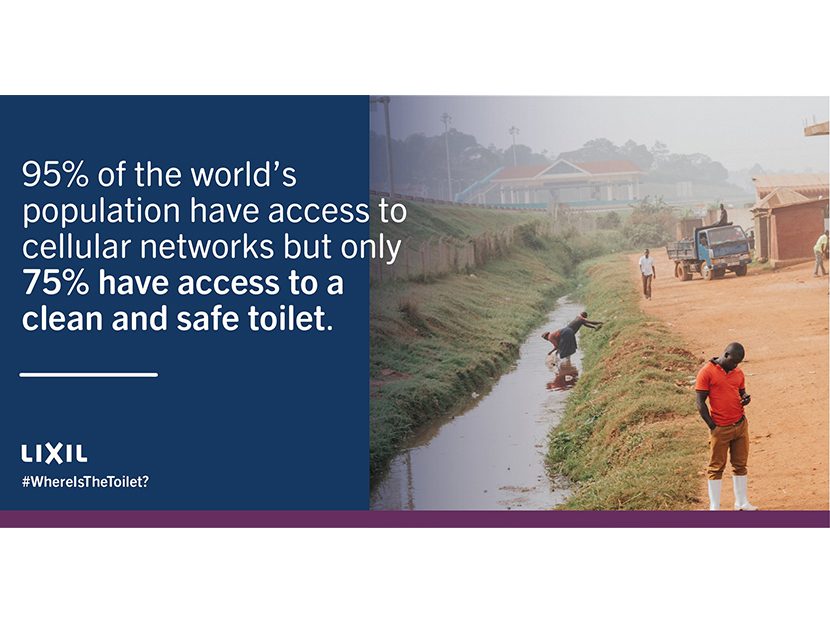LIXIL Launches #WhereIsTheToilet Social Media Campaign

"Where is the toilet?" Every Nov. 19 on World Toilet Day, LIXIL's employees think about this question in a different way.
Many in developed countries often expect a simple answer. But the reality is that for 2 billion people, there is no straightforward response to this simple question. They do not have access to basic sanitation.
On World Toilet Day, LIXIL now aims to drive even further awareness of this critical issue through its own social media awareness campaign: #WhereIsTheToilet.
The cost of poor sanitation is a heavy one to bear for families and developing economies. Approximately 800 children under the age of 5 die every day due to diarrheal diseases caused by unsanitary conditions. The number remains the same since 2016, and poor sanitation cost the world $230 billion in 2015.
The problem is so significant that the United Nations (U.N.) made achieving equitable sanitation and hygiene for all by 2030 one of its Sustainable Development Goals (SDGs).
As part of LIXIL's own sustainability goals, it is now committed to improving the livelihood of 100 million people through improved hygiene and sanitation by 2025. The company believes that toilets can change lives, and as a major global maker of toilets and bathroom products, it can help tackle this problem.
"One out of every three people in the world today live without access to proper sanitation." said Troy Benavidez, LIXIL Americas, vice president, public affairs. "With our SATO products, we have been able to assist 15 million people around the world to provide them access to basic sanitation."
Originally developed by a team of engineers at LIXIL's American Standard, LIXIL's SATO toilet system offer an affordable and aspirational option for consumers who live in areas that sewers may not ever reach. By October 2019, approximately 3 million SATO toilet pans and stools have been installed in 27 countries in Asia, Africa, and Latin America, propelled by a business model that also creates a sanitation economy.
LIXIL's SATO social enterprise is also accelerating its business initiatives; in the first half of FYE2020 (April 2019 – September 2019), SATO shipped nearly 420,000 units reaching an estimated 2.1 million additional people, through a make-sell-use model that has contributed to local job creation.
LIXIL's SATO social enterprise has further strengthened its brand and will be launching pilot projects in Indonesia and the Philippines, expanding its portfolio to reach many who need basic sanitation. Unlike standard product donations, LIXIL believes that enticing consumers through the availability of an attractive product, and creating jobs that benefit the individual and community, will help ensure their longer-term use.
But according to Jin Montesano, LIXIL, chief public affairs officer, there is still a lot of work to do. "It's World Toilet Day again, but over a quarter of the world's population still doesn't have access to safe and clean toilets. As we are proving with SATO in Bangladesh, it is possible to achieve both financial and social targets at the same time. There is an immense opportunity to help solve the global sanitation challenge. We – together with all of our stakeholders – still have a long way to go, but hopefully someday soon, everyone can answer that one simple question: where is the toilet?"




